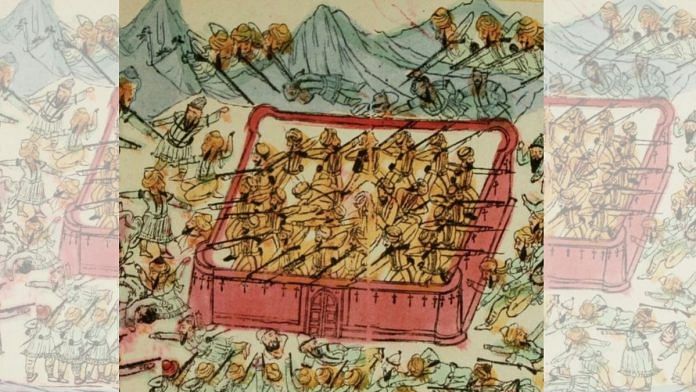Thank you dear subscribers, we are overwhelmed with your response.
Your Turn is a unique section from ThePrint featuring points of view from its subscribers. If you are a subscriber, have a point of view, please send it to us. If not, do subscribe here: https://theprint.in/subscribe/
Some of us school mates who took a walk down memory lane relived the days of yore briefly. But then the recent ‘history’ along the geography of the Payyambalam and Bernshire coast line in Kannur, alongside our boarding house, was nostalgic but disturbing. But we found that the geography of the coast line is changing with mostly illegal concrete structures replacing the palm groves where we had spent many an afternoon reading a book or just snoozing with the gentle sea breeze caressing our limbs, while dolphins played along the coastal waters. History and geography were being buried under steel and cement.
That set me thinking. History is in our minds; the perceptions of the historians is what we learn; So, each of us can be a historian at our term and rejoice in life while we can. Events of the past are mostly permanent.
There are two aspects to all ancient literature including the Vedas and related works. The values detailed in them are eternal and methods specified are times/era specific. Through generations, importance has been given to methods rather than to the values. Methods are remembered and practiced and the values or meanings they represent seem to have been forgotten. So too and more so, it is with all text based religions. As a fall out, powers that be cover their shortcoming and failings behind archaic methods and practices, exploiting the society.
As a corollary there are two distinct parts to what we generally refer to as ‘history’ – the events and the narration. The importance or substance and the truth. The substance is determined by the narrator and generally reflects the individual perception and possibly also that of the society at the time of telling. As the societal norms and values change the substance will also take on a different hue. In other words, while the past can’t change, history (narration) changes with times!!! The other part is truth. Every narrator or historian confirms an event to be true with supporting facts. The interpretation of the fact to be ‘true’ is a wholly individual perception of the narrator. A historian does not start from scratch. He definitely has some preconceived notions of the events dependent on his background and upbringing. Therefore, contrary to what many of us are led to believe, history is not an objective discipline but it is subjective with inputs from significant variables. At times more about the event could also be reveled though buried artifacts or archival commentaries, which necessitates change in the narrative.
History is important only to the extent that it teaches us values. True values if the narration is true and false values if the narration is false. We have to interpret history for its values and not for its events. Too much of history is also damaging to the system.
In recent times there is a lot of discussion on history being distorted, patronizing, selective; This gives me an opportunity to briefly reflect on the relevance of history itself. Hence, what I say here is not a direct comment on correctness of the views of our past but a reflection on why it is varied. Why history as a narrative, is an evolving subject and it should be so.
History is important to the extent that it teaches us values. True values if the narration is true and false values if the narration is false. We have to interpret history for its values and not for its events. For instance, the values required being a British subjugate is different from an Indian of an independent Nation. This is interpretation. Today I believe that Indians bear a far greater responsibility towards the Nation than as a subjugate of the British. Yet the ideals and ideas of an Indian should seldom change.
For instance, remember Saragarhi? The rejuvenated event in Indian history. On 12 September 1897 thousands of Afghan tribesmen attacked the outpost of Saragarhi them swarmed and surrounded the fort, preparing to assault it. Led by Havildar Ishar Singh, the 21 soldiers in the fort—all of whom were Sikhs, refused to surrender and were wiped out in a last stand. The post was recaptured two days later by another British Indian contingent. All of the 21 soldiers involved in the battle were posthumously awarded the Indian Order of Merit, which was the highest gallantry award that an Indian soldier could receive at the time. The Indian Army’s ‘s 4th battalion of the Sikh Regiment commemorates the battle every year on 12 September, as Saragarhi Day. I say, to each her own. Look at the events of the past and be your own historian (narrator).
Tailpiece: There is an old African saying “Until the Lions have their own story teller the hunter will always be glorified”. Beware of history and historians.
(The author is an Indian Army veteran and a contemporary affairs commentator. The views are personal. He can be reached at kl.viswanathan!@gmail.com)
These pieces are being published as they have been received – they have not been edited/fact-checked by ThePrint.

